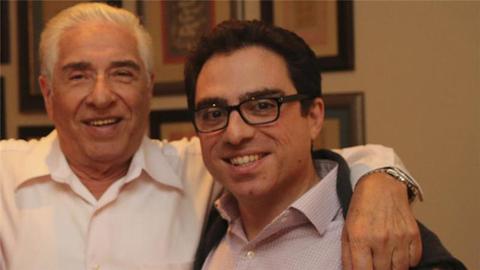Lawyers for Siamak and Baquer Namazi, the Iranian-American father and son held in Evin Prison, have appealed to Iran’s Supreme Court to overturn their convictions.
The appeal, lodged on August 28, comes a day after the Iranian government called on the International Court of Justice (ICJ) to put an end to the United States’ reimposition of sanctions, arguing that the move violates a longstanding treaty between the two countries.
Jared Genser, the Namazis’ international lawyer, has stated that if Iran insists the Treaty of Amity, Economic Relations, and Consular Rights is still valid, then the argument that Siamak and Baquer Namazi were collaborating with a “hostile state” does not hold, since the agreement states: “[t]here shall be firm and enduring peace and sincere friendship between the United States of America and Iran." The agreement, known as the “Treaty of Amity,” which both the United States and Iran signed in 1955, also says political differences do not amount to hostilities between countries.
Iranian officials have referred to the treaty to validate its complaints against the US. Recently, they have again insisted that the sanctions — which have been partially reintroduced and will take full effect in November — following President Trump’s decision to withdraw from the nuclear deal (the Joint Comprehensive Plan of Action) violate terms set out in the Treaty of Amity. They argue that since neither party has formally left the treaty, its terms are still valid. Officials also raised the matter of the treaty when arguing against the US appeals to the ICJ to fine Iran for having links to terrorism in 2016.
In light of this, Genser has appealed to Iran’s Supreme Court to review the legality of the Namazis’ imprisonment. He also called on the UN Special Rapporteur on the Independence of Judges and Lawyers to open an investigation into the legality of the Namazis’ continued detention if Iran insists that it continues to uphold the Treaty of Amity. “Iran cannot, on the one hand, invoke the Treaty of Amity when filing complaints against the US with the ICJ, and then, on the other, classify the US as a 'hostile' government in order to sustain these convictions. Should Iran’s Supreme Court choose to uphold the Namazis’ convictions, it will in effect negate the Iranian government’s assertion about the validity of the Treaty of Amity – which would seriously undermine its claims the ICJ has jurisdiction to hear Iran’s complaints against the United States and could lead to the ICJ dismissing these complaints.”
Siamak Namazi has been held since 2015; a few months later, in February 2016, his father Baquer, who is in his eighties, was arrested after he traveled to Iran to help bring about the release of his son.
Iran’s economy has deteriorated dramatically since the May announcement that sanctions would be reimposed. The Iranian currency, the rial, continues to lose value, and inflation and unemployment rates have spiked.
The US has insisted it will fight against the accusations, which it dismissed as an attempt to disrupt measures it has taken to protect its own national security.
visit the accountability section
In this section of Iran Wire, you can contact the officials and launch your campaign for various problems

























comments